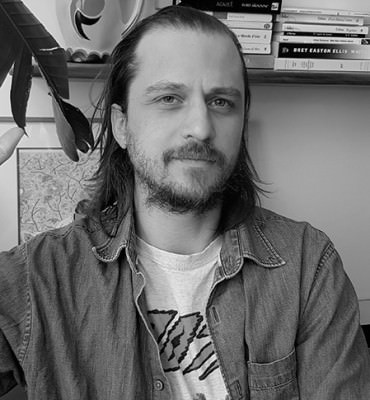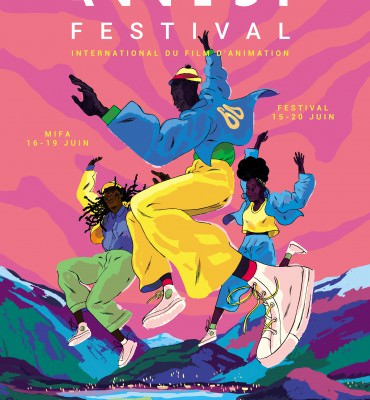Meeting rising animation phenomenon Denis Do
On Thursday, 24th January, animation students from Atelier de Sèvres met director and screenwriter Denis Do, who was awarded Le Cristal at the 42nd Annecy International Animated Film Festival for Funan. We look back over his career path.
Tell us a bit about your background.
I don’t think I have a particularly extraordinary career path — quite the opposite. I started out as a scenery/layout designer on the film Titeuf, in 2009. After that, I was commissioned to work on a lot of storyboards for ads or video game trailers for various companies. I also worked a bit on animated series. In 2014, I worked on Rémi Chayé's Long Way North and then on Arthur de Pins' Zombillenium. Then I started working on Funan. I might be forgetting some things…. But I’m not that bothered about my CV. We work in an environment where everyone knows each other. As a result, we know more or less who does what ... Which, generally speaking, makes things easier when looking for work!
Where did the idea for Funan come from?
The idea around this film wasn’t a light bulb moment. All this is the result of a (short) lifetime of listening to my mother tell me about her past. Those kinds of stories leave their mark on you. One feels inhabited by all this, whether consciously or not. Then, one day, you feel ready to begin. For my part, it was a simple, spontaneous remark from a friend, at Gobelins, during our final year.

How long did you work on the project?
The project got off the ground slowly. I started out by myself and then Michael Crouzat, animator and art director of the film, came onboard. At first we were a bit naïve in the way we progressed, but we were bursting with enthusiasm. Subsequently, under the guidance of several professionals, I auditioned several screenwriters who had recently graduated from CEEA (Conservatoire Européen d'Ecriture Audiovisuelle). If memory serves, Magali Pouzol, co-scriptwriter of the film, joined us in around spring 2011.
From that point on, artistically, things accelerated. Alone, you are only accountable to yourself, and so the pace of work can sometimes be a bit chaotic if you’re not disciplined. But, as a team, you feel obliged to move forward; you are no longer driving this alone.
In 2012, the producer Sebastien Onomo signed up for the project. And, at the end of 2013, we tackled the pilot with a lot of excitement, as it was the first step towards it being made. Subsequently, the final partners joined us. In May 2016, production began and lasted about one and a half years.
What does this film mean to you?
A lot, of course. Simply because the story is based on events experienced by my family. It's a film I've been making for almost 10 years and I put a lot of energy into it. What is amazing, is that a film is intangible. We gave all this effort for something immaterial.
Were you expecting such success?
No, I finished editing the film a week before Annecy. It was impossible to have any perspective. I even wondered about its relevance. Thankfully the public was there... I expected nothing: I was disappointed, tormented. I was terribly afraid that I would have to say to myself, or that people would say to me, "All that for nothing.”
I really like meeting people to talk about the film and also to listen to stories and accounts. I'm glad that the film has been well received. But I hope it will be over soon for me and that the film continues to live on its own. It is quite exhausting to present it everywhere — and work at the same time! But above all, laying yourself bare is bad for the mind – at least it is for me. I'm afraid of being clumsy, of saying too much or not enough ... I can’t wait for it to be over!

What qualities do you need to become a writer-director?
I do not really know. It all depends on the film, the story, the project. I don’t think there is an ideal profile. In general, when you have talent, the production comes to you. When it's more problematic, like me for example, I'm really sincere about it. We must make an effort, not give up, surround ourselves with the right people, believe in order to make others believe ... Maybe work two, three, four times harder than everyone else.
What advice would you give to students?
What is certain is that it takes patience. Even just accepting that looking for funding takes time when you are starting out and not yet known. And then artistically, it also takes time for a project to mature. In my career, before making the film, every professional experience was helpful. It is necessary to take on and digest as much as possible before deciding on which direction to take. And the most important thing perhaps is to be obsessed with your story. To want to tell it no matter what.


